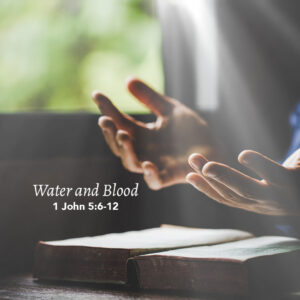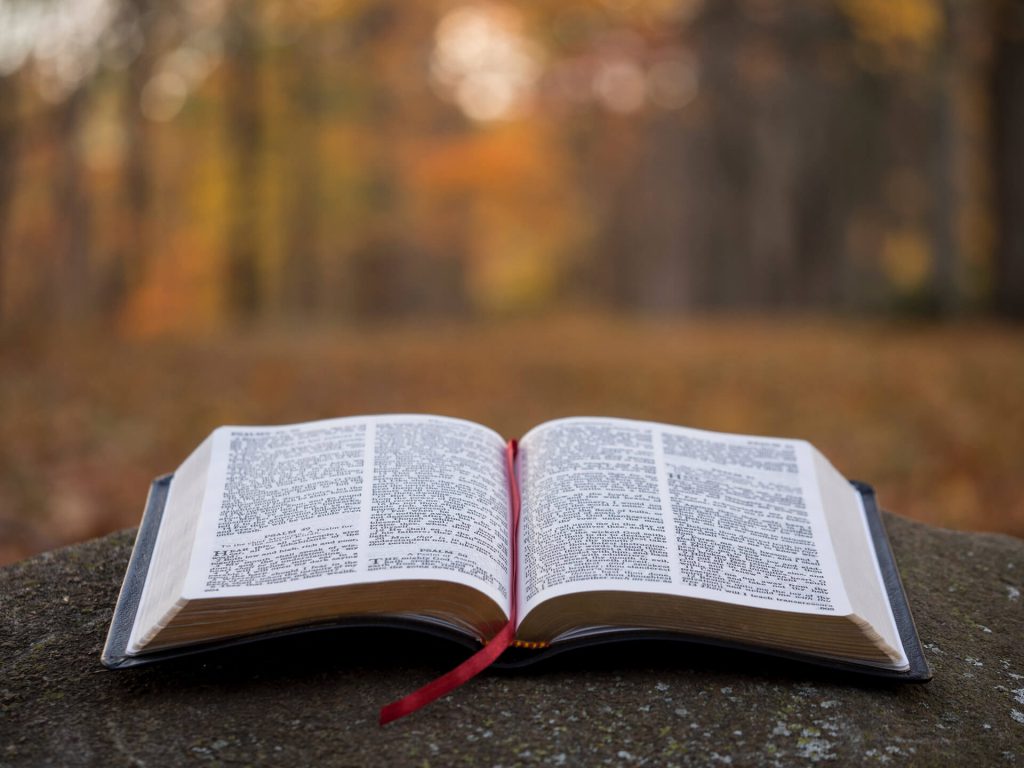1 John 5:6-12: Water and Blood
November 19, 2023
TODAY'S BIBLE READING:
Ezekiel 48, Job 17, John 12:12-19, 1 John 5:6-12

This part of John has caused some confusion over the years. First, remember that John is addressing false teaching by reminding and instructing his readers of the connection between doctrinal orthodoxy and moral obedience. In that context, he brings in this notion of Jesus coming by “water and blood.” What does he mean by this? The most likely interpretation is that he is referring to his baptism (hence, “water”) and to his death or crucifixion (hence “blood”). But why these two does he emphasize, and why so significant? Evidently some heretics thought that Jesus somehow “became” divine at his baptism, rather then having his divinity affirmed. And some others denied that the Lord Jesus Christ as God-man could die on the cross. And so John is emphasizing that Christ, the real Christ, is revealed as such both by water and blood, both by the witness of the Spirit – who testified to his divinity at his baptism – and to the death and resurrection of Jesus Christ, that is through the “blood.”
The second half of this passage, from verse 10, then leans on the demonstration that has been so proven. John then says, well if someone rejects this true Jesus – the fully God fully man Jesus who was witnessed as such at his baptism and through his death and resurrection – what then? The answer is that if someone rejects Christ, then they are rejecting God. “Whoever does not believe God has made him out to be a liar, because they have not believed the testimony God has given about his Son.” Or again, John says, “Whoever has the Son has life; whoever does not have the Son of God does not have life.”
What this means is that if someone reads about Jesus in the Bible, they come across the real Christ as revealed in the Scriptures, and they reject him – fully conscious of who this Christ is – then they are rejecting God (for, of course, Christ is God). If someone looks at Jesus and says, that’s God!, then they are worshipping God. But if someone rejects Christ, then whatever they’re worshipping, it is not God.
Again in John we are being taught the importance of doctrinal orthodoxy (and its connection to moral obedience).
ABOUT THE AUTHOR
Josh Moody (Ph.D., University of Cambridge) is the senior pastor of College Church in Wheaton, IL., president and founder of God Centered Life Ministries, and author of several books including How the Bible Can Change Your Life and John 1-12 For You.
WANT MORE?
To receive God Centered Life devotionals directly in your inbox, as well as other resources, enter your email address in the form at the bottom of this page and click "subscribe."

